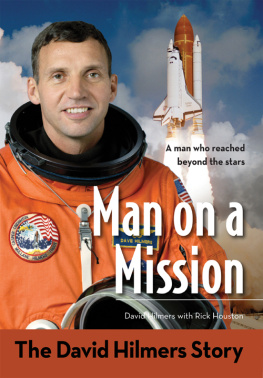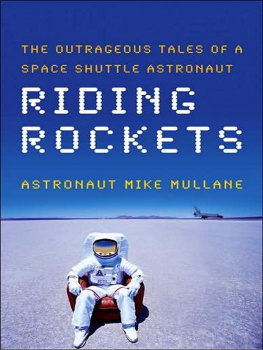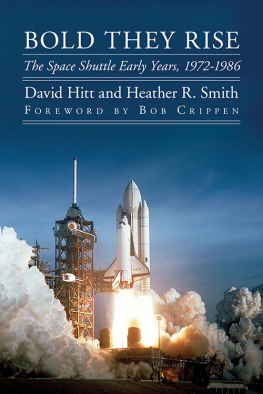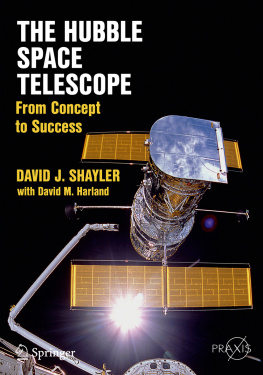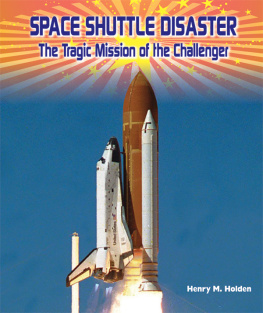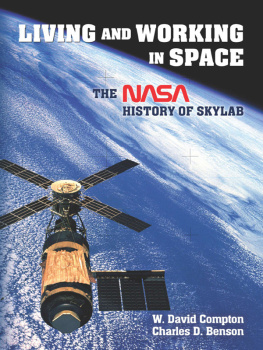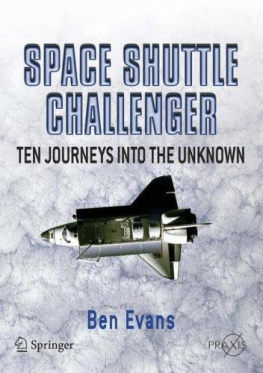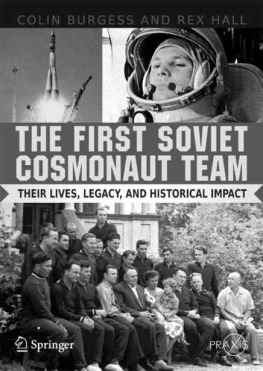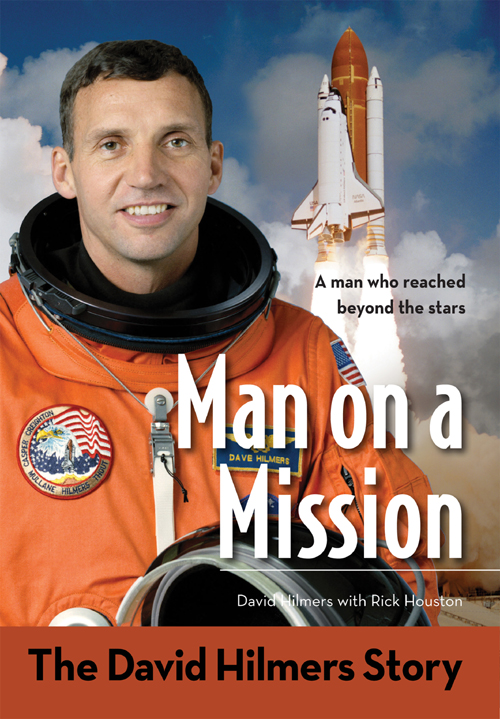The announcer counted down the seconds to the launch of STS-51J, the first of my four flights on board the space shuttle.
T-minus twelve
Eleven
Ten
And go for main engine start
T-minus six
We have main engine start
Just past 11:15 a.m. on October 3, 1985, I was strapped into my seat on the flight deck of the brand-new shuttle Atlantis. Outside, it was sunny and warm in Florida at the Kennedy Space Center (KSC). Inside the shuttle, somewhere far below my seat, the fuse on the three main engines was lit, and the engines roared to life.
Id been preparing for this moment for months, but I was not expecting so much noise and vibration. Maybe I shouldnt have been surprised. After all, the engines provided a total thrust of more than 1.2 million pounds, and when combined with the power provided by the solid rocket boosters (SRBs), was enough to get my four crewmates and me into orbit.
Four
Three
Two
One
Ignition and liftoff!
If the lighting of the main engines shook things up, the ignition of the twin solid rocket boosters was something else altogether. The SRBs were located on either side of the big, burnt-orange external tank to which Atlantis was attached. Huge plumes of steam and smoke around the launch pad let observers know the boosters had fired. Inside the shuttle, the crew and I knew the SRBs had started from the slow but unmistakable release from the ground.
I had been through many training sessions that simulated the motion of launch, but they didnt do justice to the actual experience. The sensation of being catapulted off the launch pad that I had expected was not there. Instead, it was replaced by a very loud roar and a shaking and rattling that completely enveloped us as we rumbled off the launch pad.
Was this much vibration normal? Surely not! The shuttle was holding together for now. A sense of helplessness washed over me, because at this point, I was just along for the ride. There was little I could do if anything went wrong.

Takeoff of the Atlantis.
The doubts passed quickly. This was the twenty-first flight of the space shuttle program, and every other mission up until then had launched and landed safely. That meant that the National Aeronautics and Space Administration NASA, for short had things completely figured out, right?
A little less than four months after this, my first launch, the loss of Challenger and her seven-person crew showed all of us just how wrong we were.
But that tragedy was still in the future, as I lay there, pressed into my seat, right behind the pilot, Ron Grabe. To my immediate left was fellow mission specialist and flight engineer Bob Stewart. In front of Bob was the mission commander, Bo Bobko, while seated alone downstairs on the mid-deck was payload specialist Bill Pailes.
We were off to the races.
About two minutes into the flight, the spent SRBs separated with a noisy thump. With SRBs sep came a much smoother ride, but also a gradual buildup of g-forces due to our continued acceleration. Although it was not an uncomfortable sensation, the increased pressure on our chests made it a bit harder to breathe and talk. The next six minutes were spent listening for various milestones during our ascent. Finally, at about eight and a half minutes, the three main engines stopped. Suddenly we went from feeling three gs to none. I was more than 250 miles above the surface of Earth in space, traveling 17,500 mph just short of five miles per second.
As my body adjusted to weightlessness, I felt a little like a clumsy young colt taking its first tentative steps. I unstrapped the safety harnesses that bound me to my seat and floated toward one of the windows as Atlantis sailed high over the coast of Africa, unprepared for the incredible view that unfolded right before my eyes. I had seen sunsets many times from ground level, yet this one was something so much more beautiful. The colors were brighter and more vivid than I ever could have imagined. I was stunned by the majestic splendor.

Crew of the STS 51J mission.
I mentioned it to Bo, who had flown on board the space shuttle twice before, and Ill never forget his reaction. Oh, thats just another sunset.
Nearly thirty years have passed since I made my way to that window, giving me plenty of time to reflect on what the view meant to me. This was so far outside anything I had ever experienced. God had created this awesome vista. Our home planet is something far bigger than the tiny sliver in which we live every day, yet at the same time, Mother Earth is just another rock bobbing around in a vast universe that God also created. The view from the window that day gave me an all-new perspective on the world and my place in it. I became aware of just how small I really am, and how big God was, is, and always will be.
There I was, floating in space, drifting this way and that in the weightlessness of the Atlantis crew module, thinking about how some desperately poor and ravaged areas on Earth appeared lovely from high above. Why should these areas be home to so much suffering? I had what amounted to a doctorate in electrical engineering. I had been a naval flight officer in the Marines. I was an astronaut aboard the space shuttle. And while those qualifications had been very useful in the military and at NASA, they werent of much value to a sick or starving child.
Funny, it took my launching into space to help me launch a new career. The majesty of what I saw helped clarify a course of action that I had long considered. I wanted to be a doctor. Although I had seriously considered applying to medical school while serving in the Marine Corps nearly a decade earlier, the timing wasnt quite right. After that, I wound up in Houston as a brand-new astronaut.
As I was floating hundreds of miles above Earth, an idea began to take hold. If I returned from the flight and pursued the life of a physician, I now could use my talents to help others I couldnt even see as they lived out their lives on the small blue planet that appeared so beautiful below through the space shuttle window.
As a doctor, I could make a difference. It took more than a decade I wasnt finished flying in space just yet! but I was eventually able to live out that dream.

